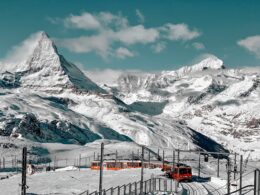Arbitrage represents the raison d’être of commodity trading. Traders try to generate profits by exploiting price differentials, be in geographical, product, or temporal form.
Geographical arbitrage
Geographical arbitrage represents a situation when one product can be sourced cheaper from a different location even when taking into account transportation costs.
This is the “simplest” form of trading; connecting areas of surplus to areas of deficit.
In other words, when there’s a high enough price differential between two locations, an arbitrage trader (aka as arbitragist) buys a cargo where it is cheap, then transports it to another geographical market, and sells it there for a higher price.
Product arbitrage
Product arbitrage represents a situation where the trader optimizes or substitutes the product sold for a more economical (yet contract-and-purpose compliant) solution.
Time arbitrage
Time arbitrage represents a situation where a trader profits from a commodity that has different pricing at different delivery times (immediate vs deferred delivery), taking into account storage and financing costs.








